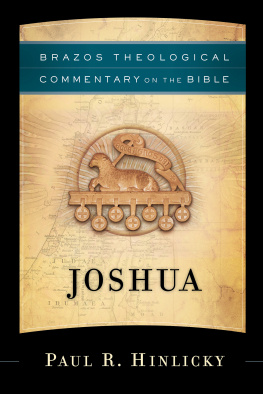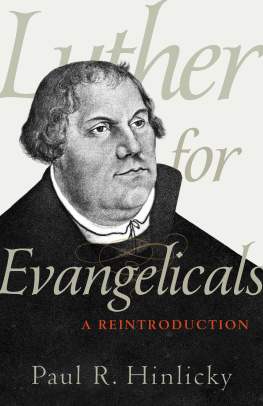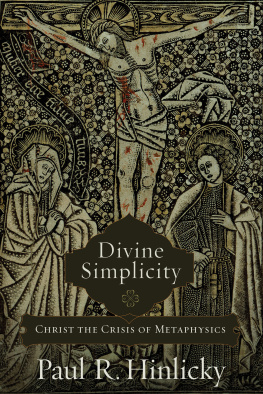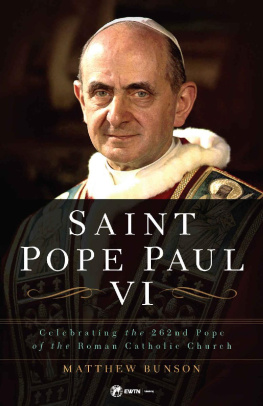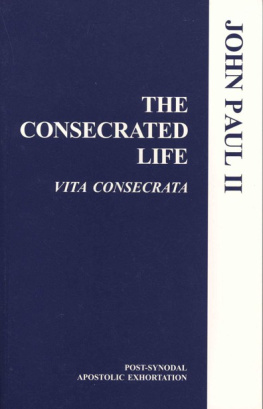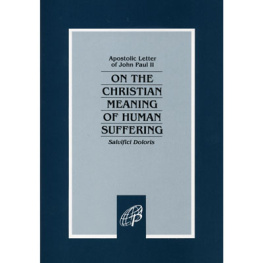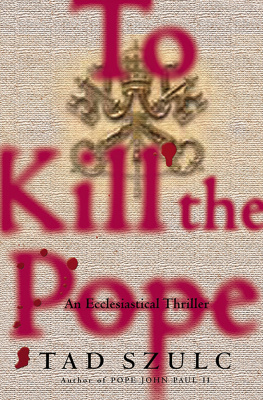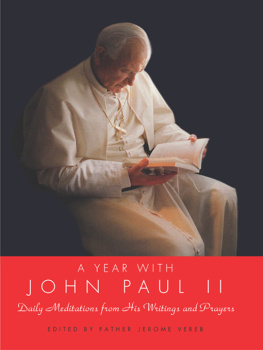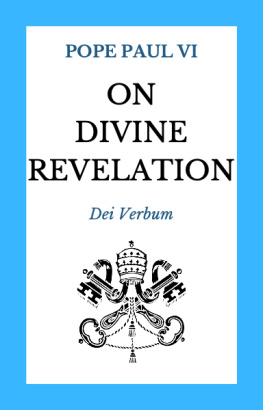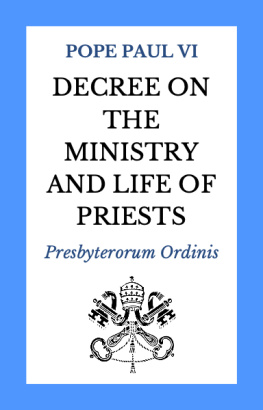Hinlicky Paul R. - Luther vs. Pope Leo
Here you can read online Hinlicky Paul R. - Luther vs. Pope Leo full text of the book (entire story) in english for free. Download pdf and epub, get meaning, cover and reviews about this ebook. year: 2015, publisher: Abingdon Press, genre: Religion. Description of the work, (preface) as well as reviews are available. Best literature library LitArk.com created for fans of good reading and offers a wide selection of genres:
Romance novel
Science fiction
Adventure
Detective
Science
History
Home and family
Prose
Art
Politics
Computer
Non-fiction
Religion
Business
Children
Humor
Choose a favorite category and find really read worthwhile books. Enjoy immersion in the world of imagination, feel the emotions of the characters or learn something new for yourself, make an fascinating discovery.

- Book:Luther vs. Pope Leo
- Author:
- Publisher:Abingdon Press
- Genre:
- Year:2015
- Rating:3 / 5
- Favourites:Add to favourites
- Your mark:
- 60
- 1
- 2
- 3
- 4
- 5
Luther vs. Pope Leo: summary, description and annotation
We offer to read an annotation, description, summary or preface (depends on what the author of the book "Luther vs. Pope Leo" wrote himself). If you haven't found the necessary information about the book — write in the comments, we will try to find it.
Luther vs. Pope Leo — read online for free the complete book (whole text) full work
Below is the text of the book, divided by pages. System saving the place of the last page read, allows you to conveniently read the book "Luther vs. Pope Leo" online for free, without having to search again every time where you left off. Put a bookmark, and you can go to the page where you finished reading at any time.
Font size:
Interval:
Bookmark:
LUTHER
vs .
POPE LEO
PAUL R. HINLICKY
VS.
POPE LEO

A CONVERSATION IN PURGATORY


LUTHER VS. POPE LEO:
A CONVERSATION IN PURGATORY
Copyright 2017 by Abingdon Press
All rights reserved.
No part of this work may be reproduced or transmitted in any form or by any means, electronic or mechanical, including photocopying and recording, or by any information storage or retrieval system, except as may be expressly permitted by the 1976 Copyright Act or in writing from the publisher. Requests for permission should be addressed in writing to Permissions, Abingdon Press, 2222 Rosa L. Parks Blvd., PO Box 280988, Nashville, TN 37228-0988, or e-mailed to .
This book is printed on acid-free paper.
Library of Congress Cataloging-in-Publication Data has been requested.
ISBN: 978-1-5018-0420-5
Unless otherwise indicated, all scripture quotations are from the Common English Bible. Copyright 2011 by the Common English Bible. All rights reserved. Used by permission. www.CommonEnglishBible.com.
Scripture marked as NRSV is from the New Revised Standard Version of the Bible, copyright 1989, Division of Christian Education of the National Council of the Churches of Christ in the United States of America. Used by permission. All rights reserved.
Quotations from Declaration on the Way: Church, Ministry, and Eucharist courtesy of Augsburg Fortress, copyright 2015.
Quotations from the Joint Declaration on Justification by the Lutheran World Federation and the Catholic Church courtesy of Wm. B. Eerdmans, copyright 2000.
Unless otherwise noted, all references to Luthers Works are from Jaroslav Pelikan, Helmut T. Lehmann, and Christopher Boyd Brown, eds., 75 vols. (Philadelphia: Muhlenberg and Fortress, and St. Louis: Concordia, 1955). Hereafter, all references to Luthers Works will be cited as LW with the corresponding volume and page number.
17 18 19 20 21 22 23 24 25 2610 9 8 7 6 5 4 3 2 1
MANUFACTURED IN THE UNITED STATES OF AMERICA
To friend and conversation partner, Fritz Oehlschlaeger, with whom
I shall undoubtedly spend much time in purgatory!


There must be a place in contemporary theology for thought experiments, such as the author now lays before the reader. Experienced hands regularly report that in the cold of this present ecumenical winter the doctrinal dialogues that arose after Vatican II have run their course and accomplished what they can. Supposedly we are now awaiting the long, slow march of reception through our hide-bound institutions. So why not a little play to pass the time? Perhaps even speed the process? Granted, I am playing with fire that can burn! But are we so satisfied with where we are that a little creative destruction cannot possibly help? It was tongues of fire, we are told, that descended on disciples hiding behind closed doors and pushed them out on the wind into the open to dream dreams and see visions. There are certain orthodoxies in academic and in ecclesial theology that squeeze this little space for experimentation so small that the smoldering wick gets smothered. But the flame of the divine Spirit creates its own oxygen. To switch the metaphor, the holy dove needs rooms to stretch wings and take flight into worlds that have not been but could yet be.
Let me confess right up front: I am no stylist. Genre-wise, I have birthed some kind of a monster in what follows: neither history nor theology but some fanciful, or, if you will, creative hybrid of the two that I am tempted to call an ecumenical fantasyif the invocation of fantasy would not confuse contemporary readers all the more. As fanciful as putting Luther and Leo X together in an interminable purgatory may seem, I, in any case, mean what I say in the following with all the claim on mind and also Christian conscience that I and the story I have spun can muster. So maybe the tale falls into the genre of apocalyptic story like Daniel or prophetic fiction like Jonah. I dont know! Let the reader decide!
I do know that the author is a Lutheran. I think that is well known. But he is not of the wagon-circling type, sworn to eternal opposition to the papal antichrist. I think that is well known as well. Admittedly in what follows this Lutheran author can and will be accused, by certain Catholic readers of wagon-circling persuasion, of putting many things on the lips of Leo unjustified by strict historical science. If it will be of any comfort, let them assuredly know that certain Lutheran readers of the same wagon-circling proclivity will accuse the author of precisely the same crime regarding the Luther who appears in what follows. How else could he tell the story of their sojourns together in purgatory? It is not a revelation that the author claims for his tale. It is his invention, inspired perhaps but in any case well grounded in history and theology. As we shall see in conclusion, he lets the readerindeed he forces the readerdecide about these questions as well.
The genesis of the book is simply explained. Abingdon Press editors asked if I would contribute to a series of this motif, expositing classical standoffs in theologythe first time of authentic Christian values uniquely preserved in Roman Catholicism, values that Protestants needed to recover. He taught Lutherans especially to think of the tragic necessity of the Reformation:
Partisans on both sides have difficulty acknowledging that the Reformation was indeed a tragic necessity. Roman Catholics agree that it was tragic, because it separated many millions from the true church; but they cannot see that it was really necessary. Protestants agree that it was necessary, because the Roman church was so corrupt; but they cannot see that it was such a great tragedy after all.
As I mulled the matter over, a brainstorm befell me, not unlike the lightning bolt that struck at law student Luther and chased him into the monastery. I had been working on the Ninety-Five Theses and was struck by how Catholic the argument actually ismore Catholic than the pope, so to say (well, in the Renaissance Florentine case of Giovanni de Medici, who became Leo X, that is not such a stretch). Professor Timothy Wengert, in a little book recently published on the Ninety-Five Theses, reported how a contemporary Lutheran layman pronounced, upon reading the famous text that ignited the great controversy of five hundred years ago, Its not very Lutheran! A curious but revealing comment! Perhaps it is contemporary Lutherans who are not, well, very Lutheran.
In any event, the insight that broke through was how Luther, in the theses, put the indulgence merchants on the horns of a dilemma: If purgatory is punitive, meant to satisfy divine justice before admission to heaven, and if the pope really has the power to relax such punishment, why not out of Christian love, as Scripture says, set the prisoners freefor free? An act of great generosity, alas, but not so lucrative, Luther insinuated. If, however, purgatory is purification, the Spirit preparing the redeemed to enter the presence of the holy God, what true Christian would ever short-circuit the process with a bribe, howsoever painful the purification needed to be? May such time together in prayer and dialogue examine memories and purify desire!
Next pageFont size:
Interval:
Bookmark:
Similar books «Luther vs. Pope Leo»
Look at similar books to Luther vs. Pope Leo. We have selected literature similar in name and meaning in the hope of providing readers with more options to find new, interesting, not yet read works.
Discussion, reviews of the book Luther vs. Pope Leo and just readers' own opinions. Leave your comments, write what you think about the work, its meaning or the main characters. Specify what exactly you liked and what you didn't like, and why you think so.

